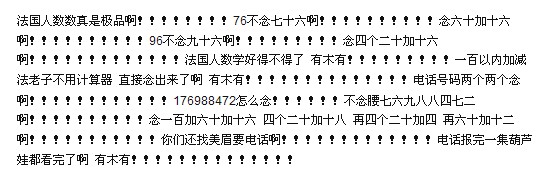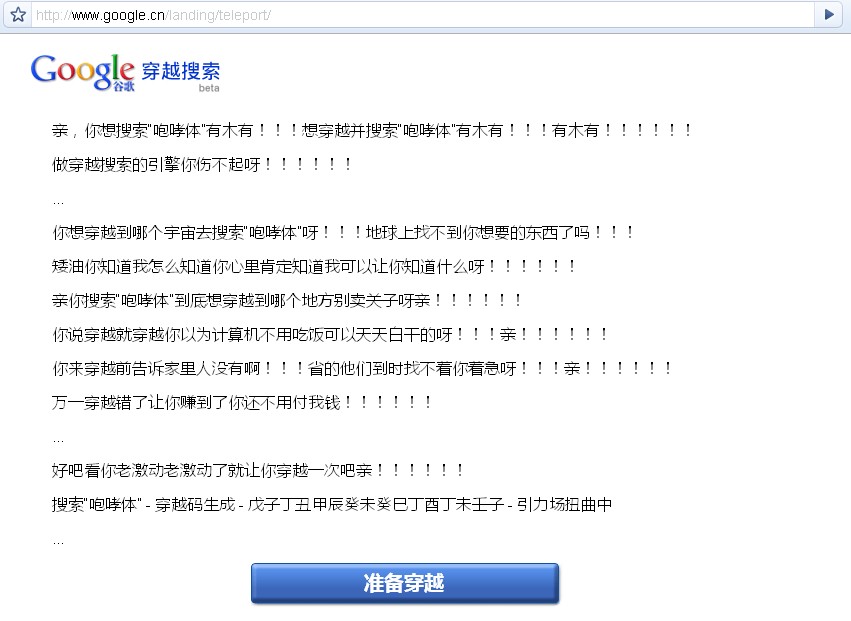News & Events | About PKU News | Contact | Site Search
Peking University, Apri. 3, 2011: “You cannot afford to hurt a person who gets up at 6:00 am and shivers all over with cold for one hour!!!!!!” read a latest status on a student's personal page at renren.com, a facebook-like SNS in China.
The PKU student attended the morning exercise required by the physical education course - which is compulsory, and the moment she returned to dorm, she powered on her computer, double clicked the browser, logged in her account on the Internet - and roared.
And she could just roar through her carried-about mobile or tablet computer en route. "You cannot afford... Is there not! Is there not!! Am I right!!! Am I right!!!!"
Yes, you are right: It is the "roaring style," or paoxiao ti. The sudden advent of a “roaring” vernacular on popular Chinese SNS and micro-blogging sites beckons the question: How are these language forms born and what is their impact on the Chinese Internet culture?
Birth of the “roaring style”
"Roaring style" was originally used to describe the performance style of Ma Ching-tao, a Chinese actor who shouts very loudly in almost every TV drama in which he features. This style first appeared in writings on Douban, a Chinese website providing user reviews and recommendations. When a user complained on renren.com about the difficulties of learning French, the style soon swept the Chinese Internet.

Ma Ching-tao (File photo)

The "roaring style" has been embraced by many Internet users as a way to let off steam. Picture: A tiger (File photo/CFP via Want China Times)

Excerpt from the post complaining about difficulties in French learning

A "teleport" prank provided by Google.cn on Apr. 1 with a "roaring style" introduction (File photo)
"You cannot afford to hurt a person who learns French!!!!!!,” the post read. When copied to Douban, it inspired an influx of “roaring” threads that have come to formalize the most salient characteristics of “roaring style.”
A "Roaring Style Generator" service even emerges on the Internet later, as the style is easily recognized and duplicated by a characteristic pseudo angry undertone and excessive use of exclamation marks.
"Roaring style”: differing opinions
The “roaring style” has its own share of supporters and detractors among the students and faculty at Peking University. Some students feel that the style is a manifestation of the Internet’s vibrancy. Zhao Xue, a graduate student from the School of Life Sciences, agreed that the “roaring style” is an effective way for individuals to vent their frustrations caused by recent events in their lives. “However, I cannot accept the excessive use of exclamation marks, linguistic unsoundness, and abusive tone.”
Opponents like Lin Tao from the Department of Philosophy feel that the “roaring style” is short-lived and not beneficial to the development of modern Mandarin. Ma Jun from the School of International Studies said that from an orthodox linguistic perspective, the “roaring style” is improper. However, he felt that “language has to meet our communication needs and hence it should evolve with time.”
Professor Qiu Zeqi of the Department of Sociology posited several reasons for the birth of the “roaring style.” “Internet communication is defined by its economy and vibrancy. Therefore, the ‘roaring style’ is suitable for netizens who wish to express their meaning in the most vivid, efficient manner.”
Pressure and release: behind the “roaring style”
A user of the “roaring style,” Ma Jun said that it is a way of venting his pent-up emotions. “There is just too much pressure. Pressure from not being able to find a suitable job, pressure to find a spouse, pressure to live a comfortable life, pressure to be a model student, pressure to get scholarships... In short, I feel stressed because I want happiness, but I’m afraid that it is not within reach.”
Professor Qiu expressed support for this creative way of venting. “It is easy for a man to overlook his basic emotional needs while pursing his goals in this fast paced, competitive, and cruel society. Like a rice cooker vents steam, a man should vent his frustrations. It is good that young people are releasing their emotional stress in this creative manner. We should also guide young people in using their creativity to benefit society,” he explained.
Professor Qiu also pointed out a disadvantage of "venting" on the Internet. “First, negative emotions are contagious - they may cause other people to fall into the author's negative emotional mire. Second, people who vent their feelings on the Internet may lose their rationality and give destructive advice. It is important think about how one can deal with a situation constructively after one is done venting.”
Hu Yong, associate professor at the School of Journalism and Communication, concerned more on the "imitation" characteristic of China's "roaring Internet." "Popular vernacular forms online such as 'Vancl' and 'roaring' styles are an expression, and then an imitation."
"Imitation is a basic feature of postmodernism," added Professor Hu.
Links:
PKU Youth:
http://www.youth.pku.edu.cn/show_more.php?tkey="&bkey=&doc_id=3193
http://www.youth.pku.edu.cn/show_more.php?tkey="&bkey=&doc_id=3126
Want China Times:
The roaring style - not your mother's language
Translated by: Ma Anyi
Edited by: Jacques
Source: Agencies